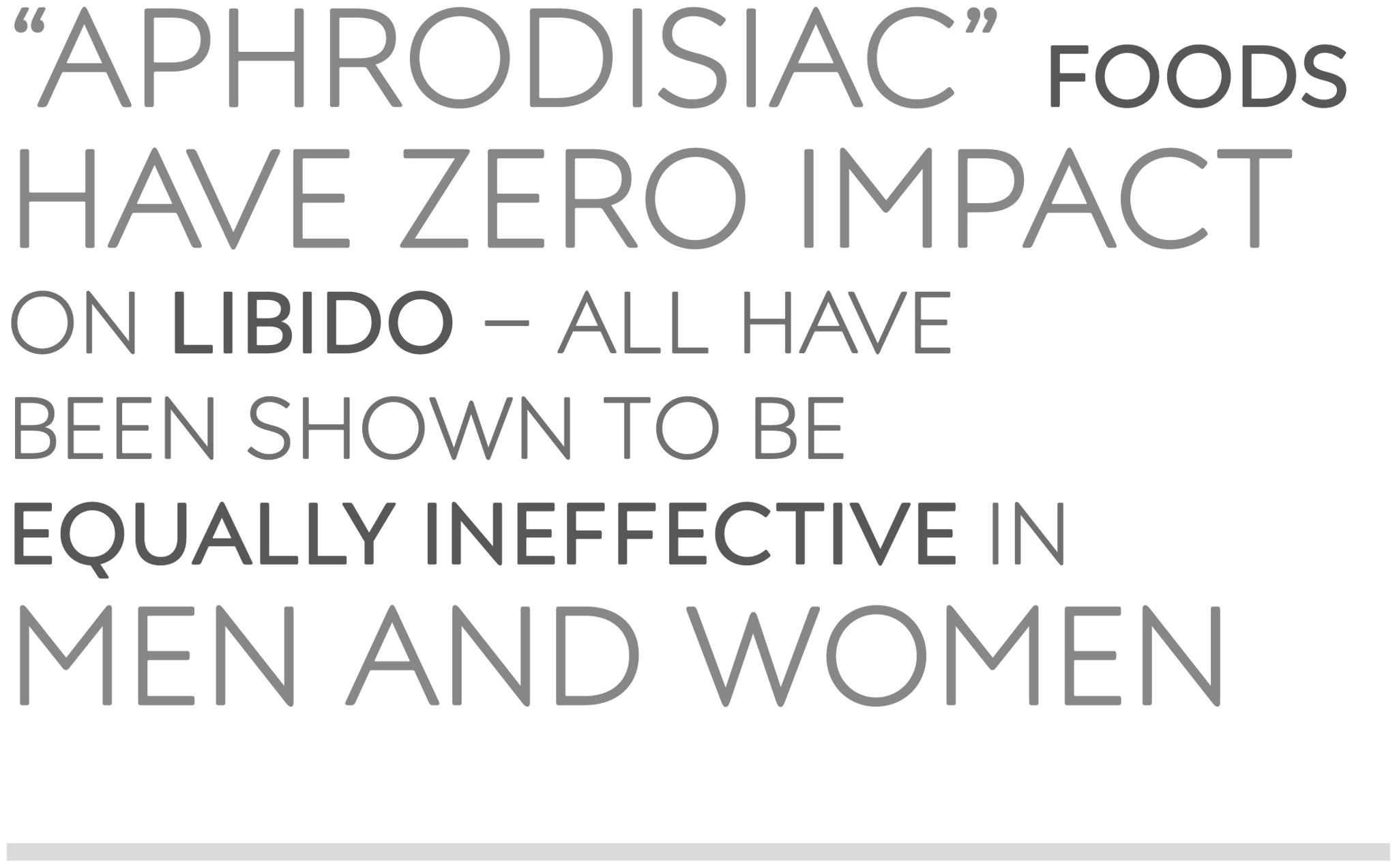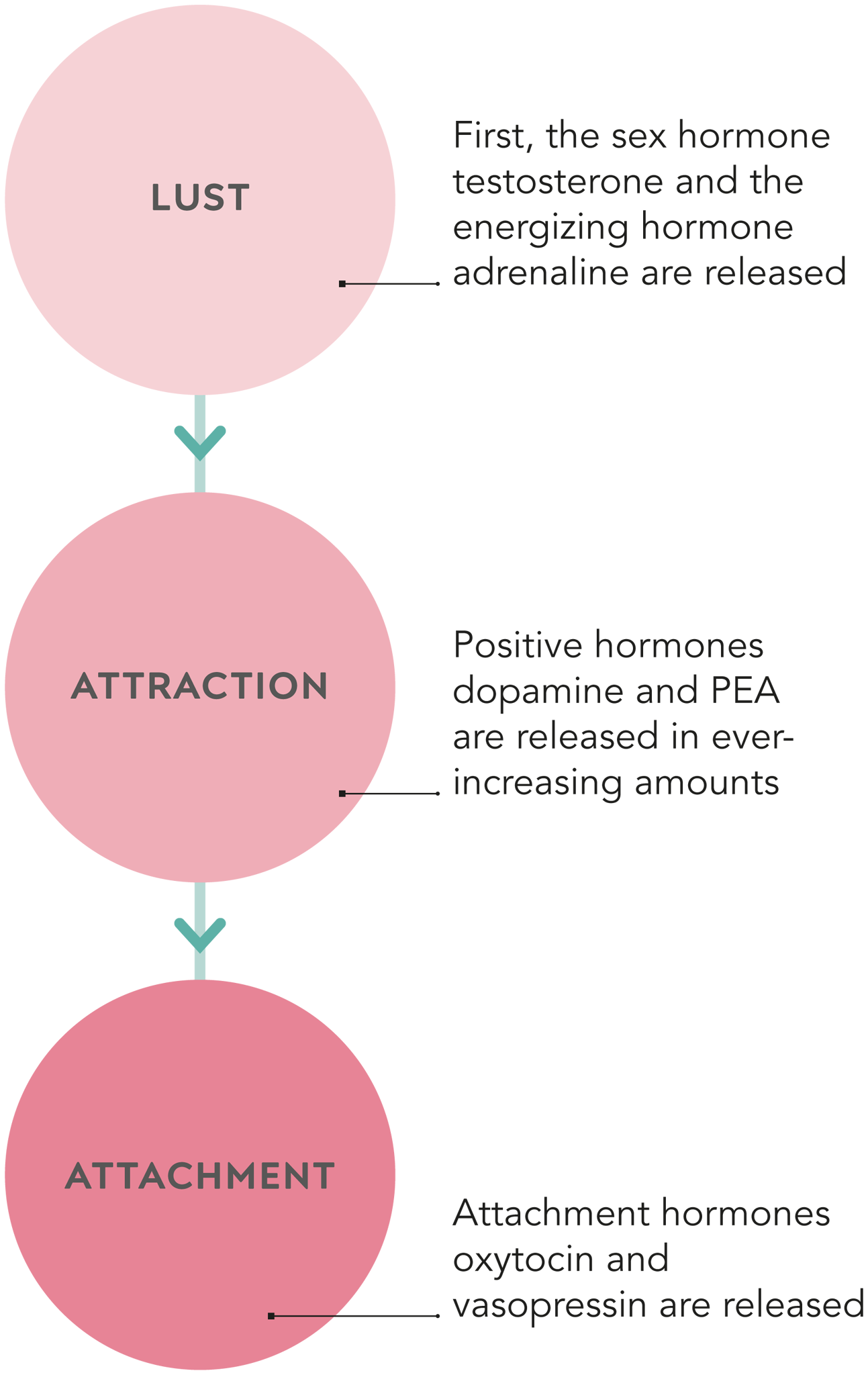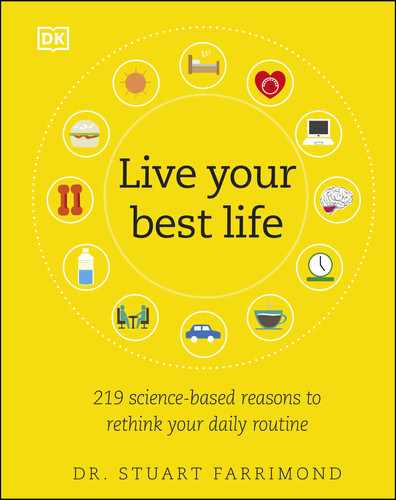Is Being in Love Good for My Health?
Falling in love brings waves of hormones into play, each with their own powerfully uplifting, but sometimes compromising, effects.
Scientists aren’t known for being gooey-hearted, but the ones who have trained their critical eyes on romantic matters have deduced that there are three strings to Cupid’s harp: lust (the sexual urges that you feel), attraction (so that you find a good mate), and attachment (so that you stay together in the long term).
Lust first appears when you see someone you fancy and is also stoked by strong feelings of attachment. Sex organs in both men and women release testosterone, revving up your sex drive.
Once you’ve established mutual attraction, your brain’s reward centers become awash with a euphoric wave of dopamine. This hormone is associated with addiction, and it motivates you to pursue the object of your desire, like a bee to a pollen-laden flower. The restless dopamine drive goes hand in hand with the “love chemical” phenylethylamine (or simply PEA). This is the brain’s homemade amphetamine (a chemical similar to the narcotic “speed”), and it intensifies your excitement. Also, the energizing hormone cortisol creeps up, putting an extra spring in your step.
Contrary to what you might expect, levels of the positive hormone serotonin actually take a dip, which seems to help provide the single-minded focus to pursue your Romeo or Juliet. Loss of appetite and disrupted sleep are common, the culprits being all that dopamine and another energizing hormone called noradrenaline.
What emerges from lust and attraction is attachment. This is when a couple’s internal chemistries knot them together and calm the blazing fire. The cuddle hormone oxytocin—which is also released powerfully after sex—builds affection and bonding, reinforcing the loving feelings we have for our partner. Together with another hormone called vasopressin, it brings a sense of calm out of the brew of passion. Lust and attraction remain active within the relationship but are tempered by these calming agents.
Perhaps alarmingly, the electro-chemical soup in the mind of someone smitten by love has similarities to the brain of a person with obsessive-compulsive disorder (OCD). So although it’s normal for a lover to be very preoccupied with their partner, it’s worth noting that, when it comes to your brain, a romantic crush is only a stone’s throw away from an out-of-control obsession—and this is why being newly in love can feel so disconcerting, even threatening.
Generally speaking, the chemical boost you get from this assortment of hormones is good for you in that it lifts your mood and improves your motivation in other facets of your life, too. Falling in love can be overwhelming at first, but luckily, the hormonal storm does subside—peace will return.


n Double-tap image to read the labels
the initial cocktail of love
Each aspect of being in love drives its own unique cocktail of hormones with a range of powerful effects on the body and mind.
want to manage your lovestruck symptoms?
1
Cut yourself some slack—the heady cocktail of hormones will give you single-minded focus on your love. Other parts of your life, such as your job, may take a back seat.
2
Take some time out and make sure you spend time with other people. The dopamine drive can lead to unhealthy focus; men are at highest risk of becoming obsessive.
3
look after your health because lack of sleep and an off-kilter appetite can take a toll.
4
be realistic—the initial rush of emotions is intoxicating, but this “madly in love” phase inevitably passes, no matter how strong the relationship.
